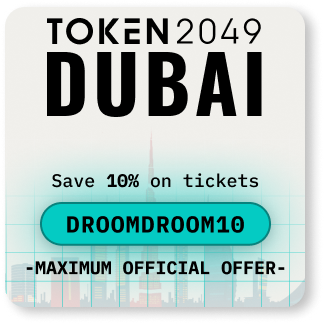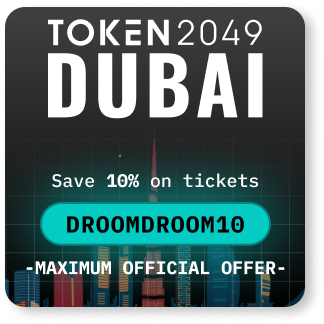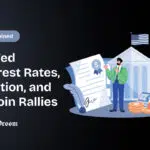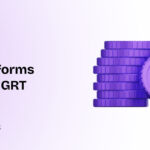As a blockchain enthusiast, you understand that blockchain is a distributed ledger technology (DLT) that enables transactions among trusted users tracking assets in a business network, validating and processing everything that happens inside the blockchain system. It maintains security and decentralized records of transactions.
- Understanding Blockchain Oracles
- Types Of Blockchain Oracles
- Input Oracles
- Software Oracles
- Hardware Oracles
- Inbound Oracles
- Outbound Oracle
- Centralized Oracles
- Decentralized Oracles
- Human Oracle
- Contract-Specific Oracle
- Examples Of Blockchain Oracles
- How Blockchain Oracles Works
- Smart Contract Execution
- Blockchain Oracle’s Role In Smart Contract.
- The Importance Of Data Accuracy And Reliability Of Blockchain Oracles
- How Oracles Allow Smart Contracts To Interact With The System And External Data
- Importance Of Blockchain Oracles
- Benefits Of Using Blockchain Oracles
- Use Cases Of Blockchain Oracle
- Impact Of The Blockchain Oracle On Blockchain Ecosystem
- Risks And Solutions In Blockchain Oracles
- Conclusion
But the issue here is that it is not limited to cryptocurrency uses, it doesn’t communicate with the outside world. Even as a smart contract that takes data as input from blockchain transactions and performs predefined tasks, it doesn’t communicate with the external system and that limits the progress of a smart contract, which is the alternative to the traditional systems. But, it has to communicate to the outside world, it must have access to information from the outside world. This is where the blockchain oracle has come to be the solution to the blockchain system.
Blockchain oracle is an entity that connects blockchains to external systems, thereby enabling smart contracts to execute based upon inputs and output from the real world.
Blockchain oracles are the solution to blockchain technology which serves to send and verify real-world occurrences, sending information and trigger the state changes on the blockchain. So, in this article, we will illustrate the concept of blockchain oracles, how they work and much more.
Understanding Blockchain Oracles
Blockchain oracles are services that send and verify real-world occurrences and submit information to a smart contract that triggers state changes on the blockchain. On the other hand, they are third-party services that connect smart contracts with external information from the outside world. Oracles provide a way for the decentralized ecosystem to access the existing data sources, advanced computations and legacy systems or a database that stores data enormously. Companies, businesses or industries use this database for their related data projects.
They are vital in the blockchain ecosystem due to the expansion of the smart contracts operation. To make it simple, they act as a bridge between the blockchain and the outside world.
Types Of Blockchain Oracles
This comes in many shapes and sizes that require various mechanisms for delivery and different levels of security. Different types of blockchain oracles come in some validating, advanced computation, attractive combinations and existing data sources. Now we will be dealing with different types of blockchain oracles and here we go….
Input Oracles
This attracts data from the real world (off-chain) and delivers it to the blockchain network for the consumption of smart contracts. It provides decentralized finance (DeFi) smart contracts with on-chain access to the financial market data.
Software Oracles
These types of oracles interact with information sources online and transmit it to the blockchain network. They collect information from websites or any data sources on the server. They can supply and transmit the desired information to smart contracts in real time since they are connected to the website. The information they provide includes exchange rates, digital asset prices and real-time data.
Hardware Oracles
These are designed to transmit information from the real world and make it available to smart contracts. Smart contracts can understand them so easily when these oracles translate real-world events into digital values. This information that can be received from any reading devices are electronic sensors, barcode scanners and other information reading devices to smart contracts.
Inbound Oracles
These are information flow directions that send data from the external world to smart contracts. These inbound oracles use hardware oracles, software oracles, or both to deliver external data used in the blockchain. An oracle that scrapes Web 2.0 websites for data is an example of an inbound oracle
Outbound Oracle
These are also information flow directions but opposite to inbound oracles. They transmit the information from smart contracts to the external world. An example of outbound oracles will be smart contracts checking on the circulating supply of a cryptocurrency token.
Centralized Oracles
These oracles are maintained and controlled by a single authority but serve as a single source of information and that alone can be risky due to vulnerability. It also acts as a single entity that provides data from an external source to a smart contract operating with a set of security features.
Decentralized Oracles
Unlike centralized oracles, it is the most suited and reliable oracles for blockchain technology. Data can easily be validated from multiple oracles since it does not depend on a single data source. They also follow the same objectives as that of the public blockchain.
Human Oracle
An individual with diverse skills in a particular domain can serve as an oracle. This individual can make use of their skill set to check the data authentication which comes from various sources and transmit it to the smart contract. An individual as a human oracle can verify their identity through cryptography, meaning the possibility of being scammed or hacked will be very low.
Contract-Specific Oracle
This is designed to be used by a single smart contract, meaning if anyone wants to deploy several smart contracts then a contract-specific oracle with several numbers of contracts will have to be developed. These oracles are said to be time-consuming and very expensive to maintain.
Examples Of Blockchain Oracles
There are different examples of blockchain oracles but we will mention very few of them, here they are:
Chainlink
This is a decentralized Oracle network that automatically allows the transfer of data between a blockchain and an external system. It depends on a decentralized network of nodes to retrieve data from multiple data sources. And then aggregate the data and deliver it to smart contracts to trigger its execution.
Augur
This is a prediction market platform that is built on the Ethereum blockchain and uses its own decentralized and trustless Oracle services. It allows users to create a prediction market for any event ranging from the weather to election outcomes. For example, Adam Smith wins X election? With either the Yes Or No options, etc. with this analysis, smart contracts will need reliable data to finalize the outcome of every prediction market.
DOS Network
This is a layer 2 decentralized oracle network that supports multiple mainstream blockchain networks. One of the most striking features of a DOS Network is the assurance of access to real-time data feeds which helps in connecting smart contracts and decentralized applications (dApps) to reliable data sources alongside the benefits of faster processing.
Band Protocol
This is a cross-chain oracle that was created on the structural ecosystem which includes many interoperable networks. Band protocol offers tamper-proof data feeds for smart contracts which use BandChain-the public blockchain of the protocol.
How Blockchain Oracles Works
The blockchain oracles function on two (2) sides: The on-chain smart contracts and the off-chain nodes.
This is how it works: the on-chain smart contract will accept or initiate any new data request from all linked smart contracts that require external data, which will then be passed on to the off-chain nodes after querying data sources. Now, once the off-chain nodes have the relevant data sources they retrieve, they will have to check if it’s valid, and then they will extract it and translate the data into the blockchain format that can read a transaction.
This transaction will now go to the Oracle contract on-chain, which will then communicate with the original smart contract. The smart contract self-executes upon receiving the data and blockchain nodes validate the transaction. Some of the other oracles can even execute off-chain computation for smart contracts, which is helpful as on-chain computation is very expensive and inefficient.
To put it in the simplest ways how it works accordingly is:
Data Request
↧
Data Retrieval
↧
Data Verification
↧
Data Transmission
↧
Smart Contract Execution
- Data Request: The smart contract initiates a data request from all linked smart contract operations that require external data.
- Data Retrieval: Oracle will collect the requested data from a specified external source. And this source is online APIs and a data feed or even another blockchain.
- Data Verification: Mainly for decentralization, which will collect the same piece of data from multiple sources and validate the data by achieving consensus between these sources. This will enhance the credibility and authenticity of the data.
- Data Transmission: Once it’s verified, Oracle will push it to the blockchain technology.
- Smart Contract Execution: The smart contract will then integrate this data as an input to its execution logic. Once it meets the predefined conditional statement in the contract, it will trigger the contract which will execute the encoded operation automatically.
Blockchain Oracle’s Role In Smart Contract.
It plays a vital role in smart contracts by enabling it to interact with external data and events. They also enlarge the capabilities of the smart contract beyond the blockchain environment which allows the execution of complex business logic that requires the information of the real world.
The Importance Of Data Accuracy And Reliability Of Blockchain Oracles
These are very crucial in smart contracts, as the execution of these contracts relies on trustworthy information and accuracy. These oracles ensure the integrity of external data used within smart contracts.
The best practice to implement it is by conducting audits thoroughly and security assessments, leveraging the solutions of blockchain Oracle and implementing fallback mechanisms for data verification.
How Oracles Allow Smart Contracts To Interact With The System And External Data
Oracles act as bridges between blockchain-based smart contracts and the real world, facilitating communication and information exchange. By sourcing off-chain data from external sources such as APIs or IoT devices, oracles will make it possible for smart contracts to have access to real-time information which is required for execution.
Smart contracts will receive inputs from the external systems with oracles, giving the assurance that the specified conditions within the contract are met before executing certain actions. This will open a wide range of possibilities for utilizing smart contracts in the real world.
Leveraging other kinds of communication protocols and data translation mechanisms, oracles will ensure seamless integration between on-chain and off-chain worlds. They will also provide execution by verifying and validating the accuracy of external data before feeding it into smart contracts.
Importance Of Blockchain Oracles
Blockchain technology cannot connect to external data sources securely and reliably thereby limiting their use cases without the help of oracles. For blockchain to realize a vast majority of applications, they will need to use oracles. Or else, blockchains are restricted concerning adoption inherently, just like personal computers before the internet signals a wave of applications and adoptions.
Benefits Of Using Blockchain Oracles
Data Accessibility
These oracles allow smart contracts to access real-world data which expands the potential use cases of blockchain that go beyond native data sources. This accessibility is crucial for applications that require external information
Trust And Transparency
These blockchain oracles validate and verify data from external sources through trust before smart contracts are used. This transparency ensures the accuracy and reliability of the data on the blockchain.
Automation
Smart contracts can be executed autonomously that is based on real-time data provided by Oracle. This automation reduces the need for intermediaries, streamlines processes, and minimizes the risk of human error.
Diverse Use Cases
It facilitates various applications like decentralized finance (DeFi) and supply chain management to insurance and health care, making blockchain technology more versatile and applicable across various industries.
Use Cases Of Blockchain Oracle
Decentralized Finance (DeFi)
Oracles relay real-time price information of cryptocurrencies from various exchanges to smart contracts. They enable automatic liquidations, interest rate adjustments and other financial actions based on market conditions. It also prevents market participants from altering prices maliciously on low liquidity exchanges to exploit the protocol.
Here is an article that further explains what decentralized finance is all about
Insurance
This firm leverages blockchain oracle networks for smart contract execution on their decentralized groups. It uses oracles to verify the occurrence of insurable events. For instance, if a user makes a claim, the oracle will require data from trusted sources to substantiate the claim and send it to the smart contract. And if it was legit, they would be paid without any manual intervention.
Real Estate
Oracles pulls the data from real estate databases to provide accurate valuation of all properties and calculations of rates of occupancy of properties. It can verify property ownership records from external databases, reduce the paperwork and make the process of buying properties stress-free and faster.
Supply Chain Management
Blockchain Oracle offers a way for supply chain businesses to automate various processes, thereby reducing friction and counterparty risks in global trade. It can also integrate data from IoT devices or sensors. It helps to track the movement and conditions of goods throughout the supply chain. This gives transparency and traceability which helps to avoid fraud and make the quality of the products in perfect shape.
Impact Of The Blockchain Oracle On Blockchain Ecosystem
The Expansion Of The Use Case
Oracles delivers real-time price feeds which are instrumental for tasks like loan ratios to be determined, activating liquidation and asset value. It expands the use case of blockchain oracle on the blockchain ecosystem just like smart contracts applications, such as real estate, supply chain, decentralized finance (DeFi) etc.
Bolstered Security
It provides a secure and resilient environment with data protection, management identity and strong encryption.
Interoperability
Oracles support interoperability with non-blockchain applications and allow for blockchain application integration with existing systems through APIs.
Scalability And High Performance
This offers the capability of enterprise-grade which includes high transaction rates and quick processing times to supply scalable production workloads.
“You can also read this article on scalability in blockchain”
“Forbes on Twitter discussing the reason why blockchain needs oracles”
Risks And Solutions In Blockchain Oracles
We will be discussing the risks associated with blockchain oracles and how to mitigate the risks, here we go:
Data Accuracy
Oracles rely on external data sources but may not provide accurate information always. And this can result in malicious oracles that can feed incorrect data to smart contracts which can lead to incorrect outcomes.
Solution
Implement the right practices like conducting thorough audits and security assessments, leveraging decentralized Oracle solutions and implementing the fallback mechanism for data verification. Then the developer can enhance the accuracy and reliability of their oracles.
Centralization
Some other oracles might introduce centralization to decentralized blockchain systems if they rely heavily on a single trusted data source. And this central point of failure can compromise the decentralization principles of blockchain technology.
Solution
To overcome this issue, a decentralized oracle solution must be emerged as an alternative. It leverages multiple independent data sources and makes use of a consensus mechanism to give accurate and reliable information for smart contracts. Decentralized oracles will mitigate the risks associated with relying on a single entity when distributing trust across various users. You can also implement a fallback mechanism for data verification which can help to address centralization.
Data Manipulation
The external data sources can be vulnerable to manipulation. For instance, if a cyber attacker gains control of an oracle, it will tamper with the data it provides and that can lead to financial losses.
Solution
To make sure that data are accurate and reliable by implementing robust verification mechanisms that validate information provided by oracles. Also, a thorough audit and security assessment must be conducted to identify any form of weaknesses in the Oracle system.
Conclusion
A blockchain oracle is a trusted source of external data that provides real-world information to a blockchain network, enabling smart contracts to interact with the outside world.




















